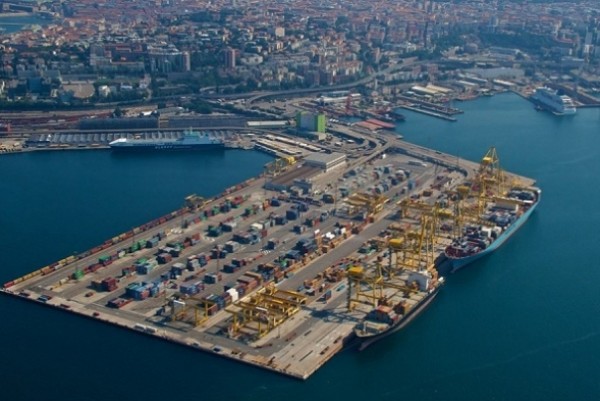| China Is Reviving The Silk Road By Buying Ports In The Mediterranean | |

| Author: Annalisa Girardi, Forbes |
| 8th December 2018 |
| ROME - The Silk Road has connected East and West for centuries, and China is about to bring it back to life, investing billions of dollars to improve trade relationships. |
|
Beijing is literally building its way to European markets by flowing capital in the construction of a network of infrastructures that will grant the transfer of Chinese goods all over the Old World as part of the Belt and Road Initiative (BRI). Throughout history, the Mediterranean has always been the center of trade routes, a connecting place where cargos, cultures and people met: one port in the north of the Mare Nostrum is now at the center of Beijing’s interests for its geographic position, its connectivity with the rest of Europe and its strategic spot in the supply chain. It is the port of Trieste, northern Italy. The seaport city, once part of the Hapsburg Empire, lies by the Italian border with Slovenia. From there it is quite easy to reach both central and eastern Europe, which gives Trieste an interesting and convenient position. It may become the new free-trade zone, the European port of arrival for merchant ships coming from China through the Suez Canal and the Indian Ocean. Trieste’s port is predicted to move 730,000 TEU (twenty-foot equivalent unit, a unit of cargo capacity related to container ships and terminals) by end of the year and it will be enlarged with infrastructures capable of receiving the massive Chinese container ships and supporting the storage and shipping operations. According to Zeno D’Agostino, the president of the Port Network Authority of the Eastern Adriatic Sea, Chinese investors will fund the construction of new terminals, docks and platforms, as well as the modernization and expansion of the industrial area surrounding the port and the rail system that will deliver Chinese merchandise all over Europe. “The real challenge of the BRI is to meet China’s industrial needs with the possibilities and the advantages we can give with our know-how on the manufacturing sector, the typical of Made in Italy. The win-win strategy is to give a very high meaning to that component of added value that we have in our SMEs (small and medium enterprises), which needs a financial and industrial drive that we are currently lacking”, said D’Agostino to the Italian economic newspaper, Il Sole 24 Ore. Michele Geraci, the undersecretary at the Ministry for Economic Development, explained that Italy and China are now fostering economic relations and Rome is welcoming Beijing’s investors to extend the Belt and Road program to the European country by participating in sectors like railways, airlines and harbors. Italy’s infrastructure has long been in crisis, while China is leading the most ambitious economic plan in the sector in contemporary history, investing in more than 65 countries and proving to be a resourceful and skillful investor. Interviewed by Il Corriere della Sera, Geraci also addressed the common worry within European governments that fear a growing dependence of those countries that, after taking money from Beijing, are pressured to align policies with the People’s Republic. Many member states of the European Union have tried to limit Chinese investments and loans to avoid being stuck in a situation where the EU rules and principles are defied, but Geraci thinks that they are not making use of the opportunities that come with partnering with Beijing. These concerns have deepened when, in 2010, Chinese company COSCO bought the authority of the Piraeus, the main port in Greece, for the next 35 years. Beijing is lending capital to those countries which are financially unstable and present economic difficulties which makes it easier to have a grip on growing interest rate and economic control. Geraci assured that Italy is not Greece and will not end up in the debt trap that this kind of heavy investments could trigger. Italian Cabinet Secretary Giancarlo Giorgetti added up to the reassurance stating that the country is not selling out national assets and that Chinese investors will only acquire minority stakes rather than a full authority on infrastructure projects on the peninsula. However, what is certain is that the modern-day adaptation of the Silk Road is strengthening China’s influence all over the world, with Beijing paving its way to the heart of Europe and Italy being the first G7 country to sign a Memo of Understanding (MOU) in the BRI framework. |